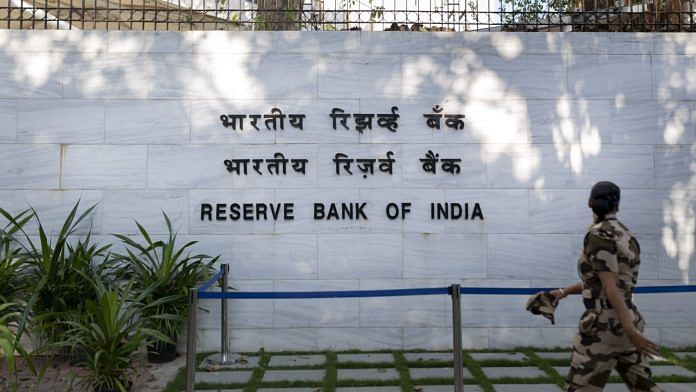New Delhi: The macroeconomic costs of the second wave of the Covid-19 pandemic for India can be limited to the first quarter of 2021-22 in the most optimistic scenario and assuming that cases have peaked by mid-May, the Reserve Bank of India said Thursday.
In its annual report for 2020-21, RBI said that in all other outcomes, losses in terms of lives, employment and output are likely to be adverse and long-lasting.
“..the macro-economic costs of this wave can be limited to Q1:2021-22 with possible spillovers into July. This is the most optimistic scenario that can be envisaged at this juncture – it provides a limited window to establish strict pandemic protocols and logistics, ramp up vaccines production and medical supplies, fill gaps in the health infrastructure and build up stocks, especially of vaccines, in preparation for the next wave of infections,” it said.
The central bank also said that a durable recovery will be dependent on continued policy support but pointed out that inflation remains a concern. “Inflation remains a key concern and constrains monetary policy from using the space available to act in support of growth. Further efforts are necessary to mitigate supply-side driven inflation pressures,” it said.
RBI said that “policy authorities are bracing up to deal with adverse fallouts on the economy from region centric restrictions.” It added that the near-term outlook is “clouded”, faced with downside risks and impact of global spillovers.
“Faster vaccination holds the key to an escape from the pandemic,” it said.
The central bank pointed out that mobility and sentiment indicators have seen a moderation in April and May.
Also read: Economic indicators show weakness began setting in with April lockdowns
Dash for cash to continue this fiscal
With a sudden spurt in Covid-19 cases again in the current fiscal, RBI expects the dash for cash seen last year to continue in the current fiscal. The term ‘dash for cash’ refers to the tendency of households to hold physical cash at homes as a precautionary measure.
In 2020-21, the increase in banknotes in circulation was higher than average primarily due to precautionary holding of cash by the public induced by the pandemic, and its prolonged continuance, the annual report said.
The value of banknotes in circulation increased by 16.8 per cent in 2020-21 as against an increase of 14.7 percent seen during 2019-20. Similarly, the volume of banknotes in circulation increased by 7.2 per cent in 2020-21 as against 6.6 per cent in 2019-20.
The increase in the currency in circulation was led by an increase in 500-rupee notes. The share of 500-rupee notes in the total bank notes under circulation has increased to 31 per cent as of March 2021 from 25 per cent as of March 2020 in terms of volume.
In terms of value, 500-rupee notes constitute more than 68 per cent of the bank notes in circulation as of March 2021, as against 61 per cent as of March 2020.
In terms of value, the share of 10, 20, 50, 100, 200 and 2000 rupee notes in the total currency under circulation came down.
The fall in the share of the 2000-rupee note can be attributed to the complete halt in production of the currency since 2019-20. In addition, over the last two years, the 2000-rupee notes have seen a gradual reduction in volumes, RBI data shows.
Also read: These 4 factors will shape how Indian economy rebounds from shock of Covid second wave



